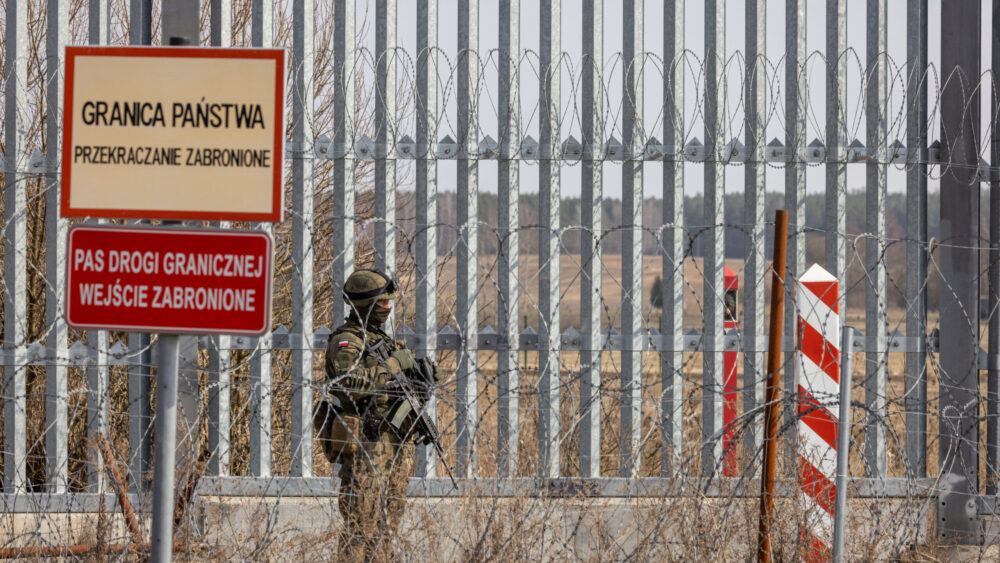Poland has expanded the powers of its soldiers guarding the eastern border following an increase in violent attacks by illegal migrants. Recent videos on social media showed migrants throwing petrol bombs at Polish troops stationed along the Belarus frontier. The move comes two months after the government launched a new campaign to reduce illegal migration into the country.
Deputy Prime Minister and Defence Minister Władysław Kosiniak-Kamysz said the attacks were becoming more dangerous, with migrants now using stones and flammable liquids as weapons. He called these acts direct threats to national security, stating, “Every such attack is an attack on the Polish state.”
To protect its troops, the government has revised the law to give soldiers clearer authority and full legal protection when using weapons in defense. According to the new rules, soldiers will not face prosecution if they act in self-defense or defend fellow soldiers from harm.
These changes follow the tragic killing of a Polish soldier last June, who was stabbed while on duty at the border. The incident prompted officials to re-evaluate the safety and legal rights of military personnel on the frontlines.
Despite the new measures, not all politicians are confident in the government’s support. Former Deputy Justice Minister Sebastian Kaleta warned that soldiers might still feel unprotected, saying, “No soldier defending the border can be certain that our state will back them rather than side with the aggressor.”
In addition to legal reforms, Poland has temporarily reintroduced border checks with Germany and Lithuania. This came after accusations from Warsaw that Germany was pushing irregular migrants back into Poland. The Polish government has also rejected the idea of joint patrols with Germany, citing security concerns.
Why did Poland change the law for its border soldiers?
The law was changed to give Polish soldiers clearer authority and legal protection when responding to violent migrant attacks, especially after a soldier was killed at the Belarus border.
These new powers are aimed at strengthening Poland’s response to border violence and sending a strong message that acts of aggression against its soldiers will not be tolerated. The government is hoping that with more protection and clear rules, soldiers can better defend both themselves and the country.

